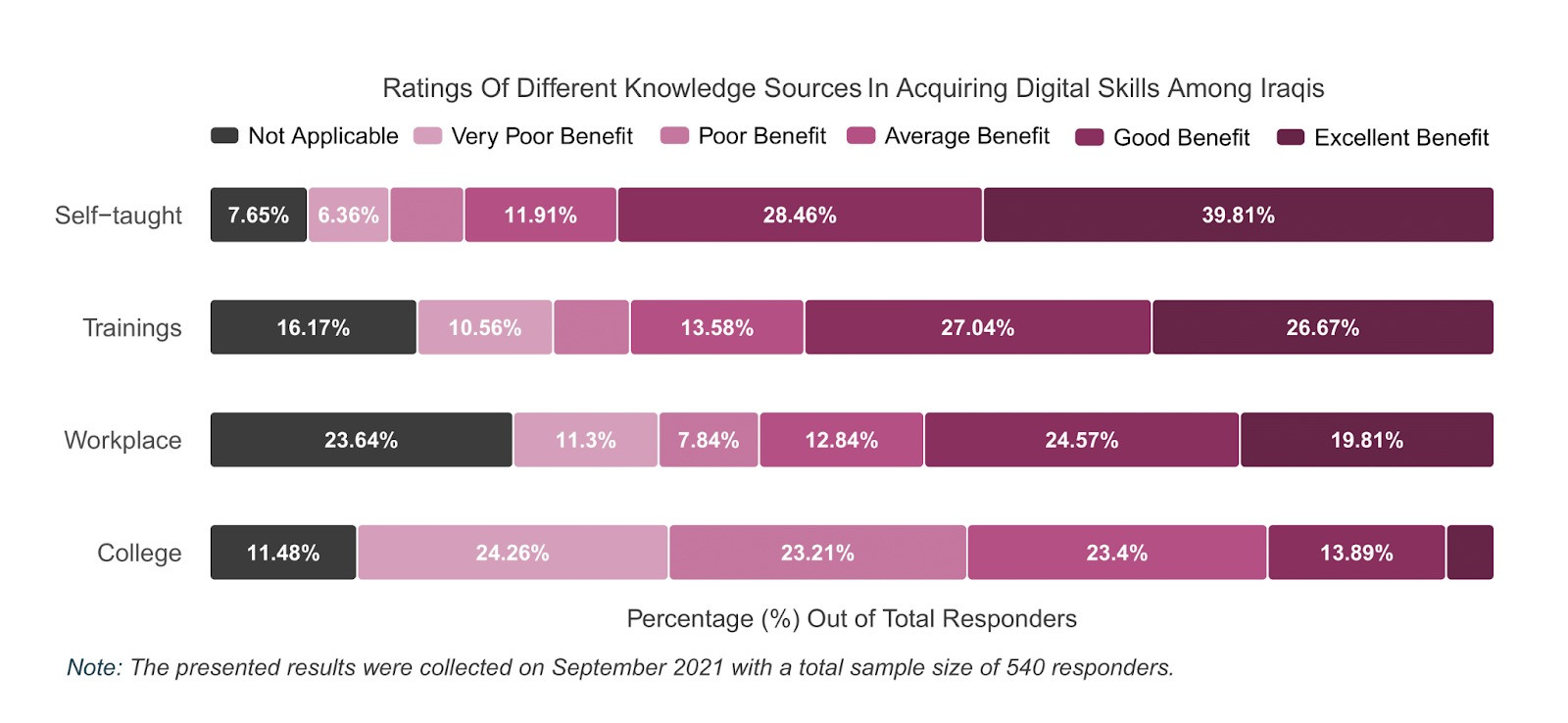Sustaining the Iraqi Business Landscape: Do We Have What It Takes?
Mohammed Jamal
The development of the Iraqi private sector has been a topic of discussion post-2003, plans on how to develop Iraq's economy have been morphing in accordance with the change of the political scene, oil revenues, and the oversaturated public sector. However, the public sector is still growing at the expense of the private sector.
Iraq has ranked very low among most of the international indices including doing business and transparency for many years which created an adverse business environment for the private sector. As corruption has spread to affect the whole community in multiple aspects including but not limited to social security and living conditions. (Read more on page 6, Setting the Scene for a Better Private Sector: Causes and Cures of Corruption in Iraq by Dr. Frank R. Gunter).
Moreover, Iraq is facing a major climate change crisis being one highly rated on the climate change ranking with an increase in the percentage of temperature average that is double of the global average. This situation provides both a challenge and an opportunity for the economy to adapt and promote the growth of different sectors, specifically agriculture. (Read more on page 26, Iraq is Moving Towards a Sustainable Future by Isa Mohammed).
Despite the numerous hindering factors, there is an increased activity from regional and global startups raising larger rounds to enter the Iraqi market in addition to the first venture investments by Iraqi corporates. (Read more on page 16, The Investment Landscape: Iraqi Corporate Starts to Venture by Ali Al-Suhail).
The Iraqi private sector is also, regardless of the challenges, witnessing an evolution in the e-commerce industry, leading to an introduction of a new kind of economy, an economy that requires a new set of skills. With the surge of e-commerce and online shopping, that has been accelerated by the COVID-19 pandemic, it is necessary for businesses to venture into the digital space. (Read more on page 38, Online Shopping: A Glimpse Into the Iraqi Customer's Shopping Behavior by KAPITA’s Research Department).
Promoting the growth of the private sector requires tackling one of the most critical challenges which is the development of human capital. As the Iraqi population is rapidly growing, with a high percentage of youth, thousands of jobs need to be created annually to accommodate the demand. This challenge cannot be addressed if there is no willingness to develop the Iraqi private sector and provide better management for these young talents. (Read more on page 18, Management by Objectives by Marwan Ahmed).
Furthermore, the youth needs to acquire new market-appropriate digital skills to keep up with the modern-day job requirements, skills the likes of data processing and analysis to build a data-driven community and fuel the digital transformation in Iraq. (Read more on page 12, Iraqi Data Analysis to Action: The Journey Towards Data-Driven Community by Riyadh Radhi).
On the topic of digital skills, digital marketing is a field that is on par with data in importance but it is still constrained to social media in the Iraqi business scene. Nevertheless, capitalizing on its potential would help businesses make more informed and data-based decisions, understand their customers better and drive audience engagement. (Read more on page 22, The Digital Marketing Scene in Iraq: the Good, the Bad, and the Way Forward by Ibrahim Al-Zararee).
Developing the human capital starts with a crucial step, reforming the educational system in Iraq, which according to many experts is inadequate to develop the skills of the youth to equip them for the job market. It is also reported that many youths are self-taught when it comes to acquiring digital skills, while formal education has proven to fall short of its responsibility as a knowledge source. (Read more on page 30, The Reality of Information and Communication Technology In Iraq: Ecosystem Reflection, Challenges, and Opportunities by KAPITA’s Research Department).

Egypt can provide a great example for Iraq to follow. Their new educational reforms included a focus on critical thinking rather than the outdated and memorization-heavy curriculum, that is still practiced in Iraq. Changing the education system to be more focused on proving new skills and equipping students with the right mindset would become the engine that would fuel the private sector forward.
Let’s circle back to the title question. Do we have what it takes to sustain the Iraqi business landscape? We currently do not but we can and we must have what it takes. We have a road and a journey that might not be an easy one to embark on. However, with the reforms of the private sector, public sector, and education system and the help of the international community, it is possible to take this critical step right now, or else Iraq will not be able to sustain the business landscape.
